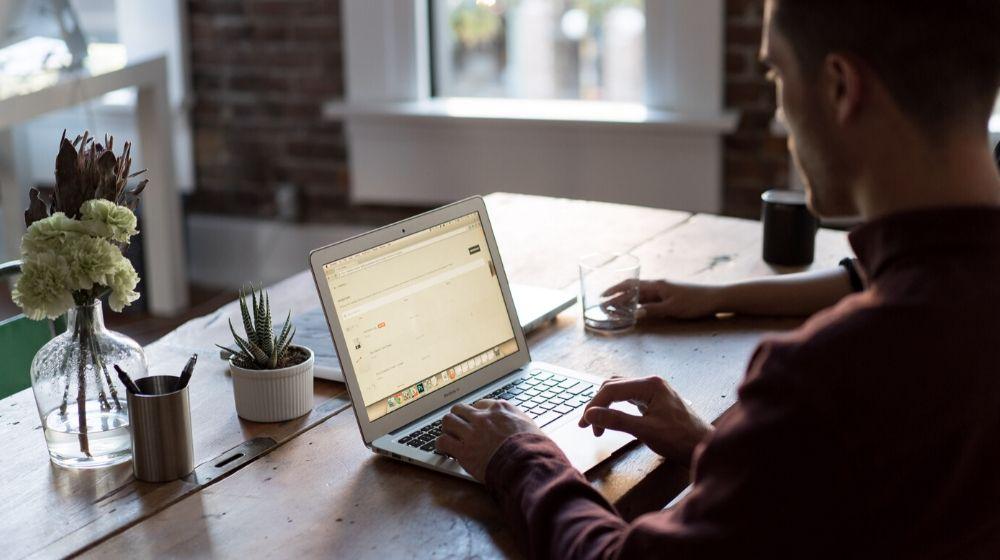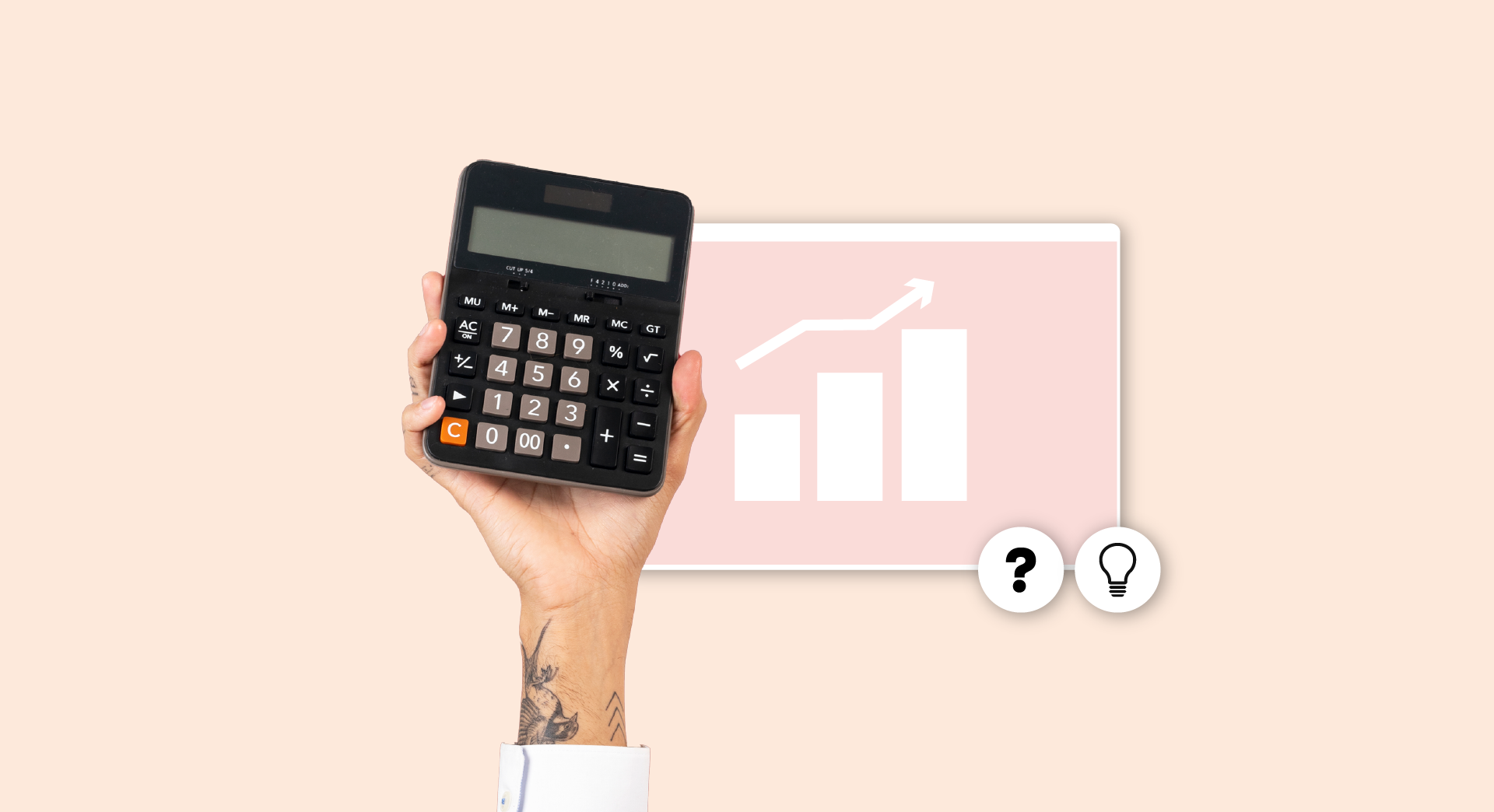If you're self-employed and you work from home, there are plenty of home office expenses that you can claim on your taxes. In this post, we’ll explain five deductions that could help you save some money at tax time.
Work from home for an employer? Sorry — you generally can’t claim home office expenses.
For details on how the Australian Taxation Office (ATO) views home offices and tips on claiming the maximum you're entitled to, scroll down below the list.
Save money with these 5 tax deductions
The ATO allows small ventures to deduct a number of expenses on their annual taxes. Here are five:
1. Furniture
The first thing you can claim on your tax is the setup costs for your home office, which might include furniture such as a:
- Chair
- Desk
- Lamp
- Shelves
- Filing cabinet
Even if you're working at the dining room table, an ergonomic office chair is a wise investment.
Related: Working from home — the insider’s secrets to success
2. Equipment

Of course, you can also claim your:
- Computer
- Smartphone
- Tablet
- Printer/scanner/fax machine
- Wireless router
- Network drive and other work-related equipment
As a general rule, items costing up to $300 can be fully claimed on your next tax return, while those costing more than $300 need to be spread out over several years.
Different assets depreciate at different rates. At the moment, the ATO says the life of a desktop computer is four years. So it will take four tax returns to claim your full tax deduction on a new computer costing more than $300.
On top of this, you can also add the costs of repairs to your home office equipment, furniture and furnishings, along with cleaning costs.
Check here for the latest depreciation facts and figures.
3. A portion of your utilities
The next thing to claim is a slice of your utility bills, such as electricity and gas used for heating, cooling and lighting.
You probably can't claim the entire bill.
If it's your home bill, then obviously some of that consumption was personal use by you or the other people in your household.
It's best to discuss with your accountant what's the appropriate percentage to claim for each bill. In some cases, it might be easier to just claim a fixed rate rather than calculate all your expenses.
4. Telecommunication expenses
Don't forget to include your telecommunications expenses. This could include your:
- Home phone
- Mobile phone or business line
- Dedicated voice and/or fax line for your home office (if any)
On top of this are your monthly home and mobile broadband bills.
Once again, you can choose to calculate your usage or simply claim a flat rate. If your telecommunications bills are mostly work-related, then your accountant will likely recommend calculating your usage so you can claim the maximum possible amount.
Remember, you must have records to support your claims.
You can't claim expenses if your employer is paying the bill. Even if you are paying the bill, you can't claim the full amount of each bill if some of it is personal use.
Editor’s note: In an age when your first contact with potential clients is often an email, you owe it to your business to put your best foot forward with Office 365 Email.
5. Office supplies
Other home office expenses that can be deducted from taxes include:
- Stationery, printer paper and toner
- Pens, notepads, staples, paper clips and sticky tape
- Envelopes and stamps
While these might not add up to much, every penny counts for most small businesses.
Now let's talk about some ways you can maximise your tax benefits while working from home.
Getting the most you're entitled to at tax time
You might or might not be lucky enough to have room for a dedicated home office, but that doesn't matter to the ATO.
Even if you're working from the dining room table, you can still claim some home office expenses.

This is where an accountant can help, as exactly what you can claim varies depending on whether:
- Your home is your principal place of work and you have a dedicated work area that is unlikely to be suitable for domestic use.
- Your home is not your principal place of work but you have a dedicated work area, such as a study.
- You work at home but you don't have a dedicated work area, such as working in the dining room.
Keep in mind the tax rules that apply to you depend on whether you work for yourself or someone else.
Get down to work
Generally, an employee who works at home and who does not have a dedicated work area will only be entitled to claim minimal running expenses, if any at all. It's different if you're self-employed and/or you have a dedicated work area.
Rule No. 1: keep all your receipts.

You might also need to keep a diary to show how much you used your home office, equipment and phone for business purposes over a representative four-week period.
In some circumstances you can claim a portion of occupancy expenses such as:
- Rent
- Mortgage interest
- Insurance
But if you claim this, then you no longer qualify for the Capital Gains Tax (CGT) main residence exemption for the part of your home that you use for work.
Note: If you use your home as a place of business, there may be CGT implications when you sell your home. Discuss this with your accountant to decide whether it's worth claiming.
Crunch the numbers
Remember, claiming something on your tax doesn't mean that you're getting it for free, so don't go on a crazy spending spree right before tax time.
If you spend $100 on printer toner and claim it on your tax, you don't get $100 back from the tax man.
Instead, you just don't pay tax on the $100 that you earned to pay for that printer toner. So if you're on a 30% tax rate, you basically get $30 back on your tax for that $100 purchase.
Claim your home office expenses
Remember, the money claimed on your tax return doesn't land in your pocket until after you've done your taxes at the end of the financial year.
If you've had a financial year that threatens to push you into the next tax bracket, talk to your accountant.
You might decide to pay for a few things in advance to move some of next financial year's expenses forward into this financial year and bring down your taxable income.
The rules change slightly every year, so it's worth getting a good business accountant. This is especially true if your income is high enough to justify forming a business rather than being a sole trader.
An accountant can also help you with things you might not have considered, such as tax deductions on the likes of super contributions and vehicle expenses — perhaps setting up a family trust.
This post should not be taken as tax advice. Always consult a financial professional for questions about the home office expenses you’re entitled to.






